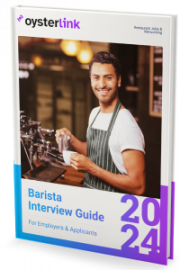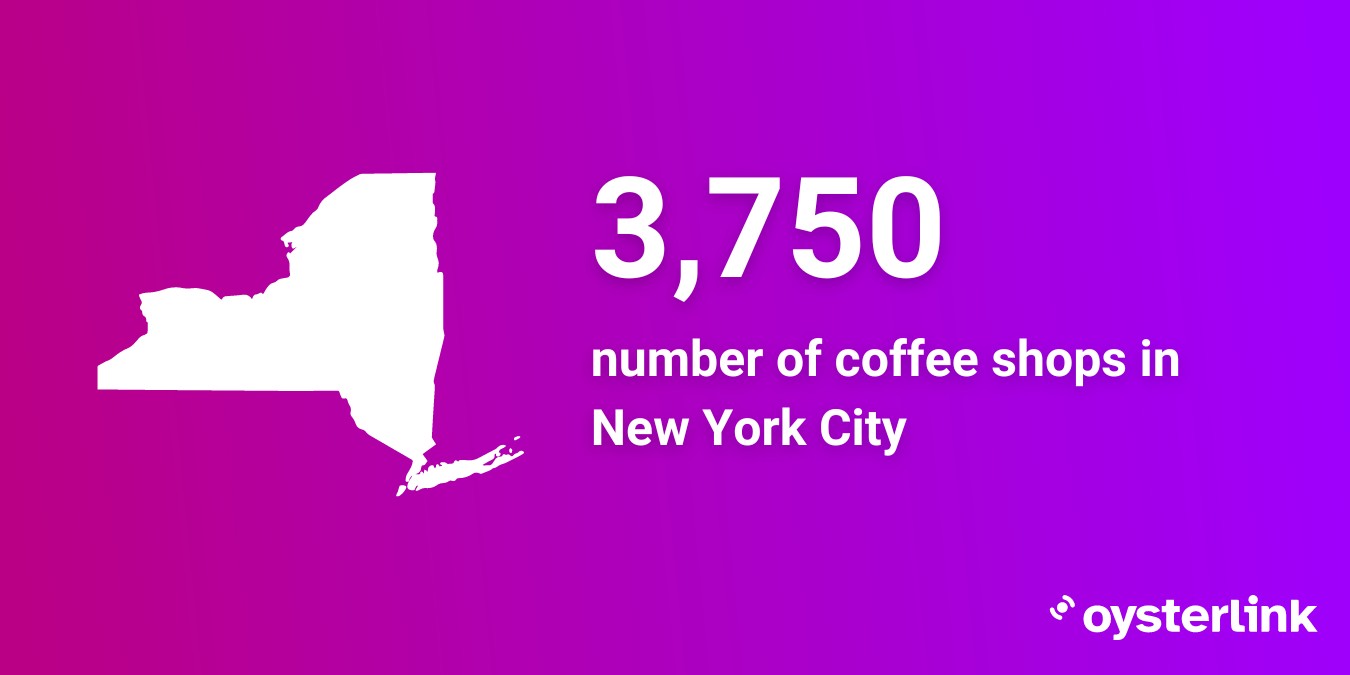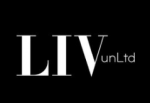Top 10 Part-Time Barista Jobs in New York City, NY
We selected some of the best part-time Barista jobs in New York City, in preparation for the launch of the OysterLink Jobs platform in December 2024.


Download the Barista’s Salary Guide & Career Handbook
- View salaries & industry trends
- Get career advice & insights
Best Part-Time Barista Jobs in NYC (Hiring Now!)
With over 3,750 coffee shops, New York City is the best place for Baristas seeking employment. The city boasts a wide range of work environments, from small independent cafes to large coffee chain establishments.

Whether you’re just starting your career or you’re already a seasoned professional, our selection of the top part-time Barista jobs in New York City caters to every preference and skill level.
Part-Time Barista Salary Trends in NYC
The average salary for a Barista in New York City is $36,735 base plus tips per year, according to the most recent data averaged from Glassdoor, Indeed and Salary.com
Part-time Baristas would likely earn a proportionate amount based on the number of hours they work.
Compare the average salaries Baristas make in major U.S. cities
 Miami
Miami
Annual mean wage
$28,998
 New York City
New York City
Annual mean wage
$36,735
 Chicago
Chicago
Annual mean wage
$36,686
 Los Angeles
Los Angeles
Annual mean wage
$38,486
[Source: Calculated using Glassdoor, Salary.com, ZipRecruiter and Indeed data]
Tipping Trends for Baristas in NYC
Like full-time Baristas, part-time Baristas may also receive tips as part of their compensation.
The amount customers tip varies based on factors such as shift times, location and customer background — particularly their experience in working tipped jobs.
Studies show that individuals with prior experience in tip-based jobs tend to tip higher compared to those without such experience.
28% of former tip-based workers reported tipping 20% or more of the total bill, while only 22% of those without such experience would tip the same.
If you are a Bartista in New York City, try out our New York Paycheck Calculator to see what your take-home pay is in this state.
Whether you receive compensation on an hourly basis or a fixed salary, our calculator ensures precise calculation of your earnings.
Paycheck Calculator
Disclaimer: Please note that this paycheck calculator is designed to provide an estimate and should not be considered as professional tax advice. The actual withholding amounts and taxes owed may vary depending on individual circumstances and other factors. For accurate and personalized tax advice, we recommend consulting with a tax professional.
If your gross pay is $74,000.00 per year in the state of New York, your net pay (or take home pay) will be $55,385.89 after tax deductions of 25.15% (or $18,614.11). Deductions include a total of [1] 12.23% (or $9,048.10) for the federal income tax, [2] 5.28% (or $3,905.01) for the state income tax, [3] 6.20% (or $4,588.00) for the social security tax and [4] 1.45% (or $1,073.00) for Medicare.
The Federal Income Tax is collected by the government and is consistent across all U.S. regions. In contrast, the State Income Tax is levied by the state of residence and work, leading to substantial variations. The Social Security Tax is used to fund Social Security, which benefits retirees, persons with disabilities and survivors of deceased workers. Medicare involves a federal payroll tax designated for the Medicare insurance program. As of 2022, Alaska, Florida, Nevada, New Hampshire, South Dakota, Tennessee, Texas, Washington and Wyoming do not levy a state income tax.
Barista’s Salary Compared to Similar Positions in NYC
Baristas in New York City earn more than Barbacks and Bus Staff, but make less than Cashiers in NYC, Servers and Bartenders.
Factors That Affect Barista Earnings
A Barista’s salary is influenced by various factors including the cost of living, experience and skill level and education and training.
Cost of living: New York City has the highest cost of living among U.S. cities, requiring an income of $138,570 for a single person to live comfortably. This figure is almost 60% higher than the required income in Houston, which has the lowest cost of living among the 25 U.S. cities evaluated, at only $75,088.
This high cost of living necessitates higher wages to cover expenses such as food, transportation and rent.
[Source: CNBC]
This chart is interactive. Hover your mouse over different parts of the chart to see detailed data.
Experience and skill level: Baristas with more experience and higher skill levels often earn more due to their ability to satisfy customers, resulting in higher tips. Additionally, experienced Baristas may take on more responsibilities within their workplace, such as training new employees or managing shifts, which leads to higher compensation.
Education and training: According to a survey conducted by the Occupational Information Network (O*NET), a career resource developed by the U.S. Department of Labor, 57% indicated that new hires do not need a high school diploma.
[Source: O*NET]
This chart is interactive. Hover your mouse over different parts of the chart to see detailed data.
However, having a diploma along with certifications from reputable organizations can give a competitive edge when negotiating salaries.
Check out the following organizations that offer Barista certification programs.
| Organization | Description |
|---|---|
| Specialty Coffee Association (SCA) | The SCA offers Barista courses at different skill levels, including the Barista Skills Foundation, Intermediate and Professional levels. These courses cover all aspects of barista work, from espresso preparation to latte art and customer service. The programs aim to expand their coffee knowledge and teach them new brewing techniques. |
| Boot Coffee Campus | Boot Coffee Campus provides hands-on Barista training workshops and courses at their training facilities in California. Their programs cater to beginners and experienced Baristas, focusing on technical skills, sensory analysis and coffee business management. |
| Seattle Barista Academy | The Seattle Barista Academy offers a variety of Barista training courses designed to develop fundamental and advanced Barista skills. Their programs cover espresso preparation, milk texturing, latte art and coffee shop management. |
| Counter Culture Coffee | Counter Culture Coffee operates training centers across the U.S., offering a range of Barista courses and workshops. Their programs focus on coffee brewing techniques, espresso extraction, milk steaming and sensory analysis. |
| Barista Guild | The Barista Guild, a community-driven organization affiliated with the SCA, offers Barista training workshops and events aimed at promoting excellence and professionalism in the coffee industry. Their courses cover espresso theory, workflow optimization and customer service. |
Which Barista Jobs Pay the Most?
Barista jobs at specialty coffee shops, high-end cafes and independent roasteries typically offer the highest salaries due to their emphasis on quality, expertise and customer experience.
In specialty coffee shops, where the focus is on artisanal brewing methods and creating distinct flavor experiences, Baristas with advanced knowledge and proficiency in coffee preparation may command higher salaries.
Similarly, upscale cafés and restaurants known for their outstanding coffee offerings, elegant interior and excellent customer service are willing to invest in experienced Baristas to uphold their standards of quality.
Independent coffee roasteries, particularly those that roast beans in-house and prioritize craftsmanship, often offer competitive pay to attract top talent.
Additionally, roles like Head Barista or Café Manager often come with higher pay due to added responsibilities such as managing inventory and supplies, training new Baristas and maintaining quality standards.
Quiz: Is Barista the Right Role for You?
Do you have the skills and the qualities required to thrive as a Barista? Find out by taking our quiz below.
Results
#1. How do you prioritize tasks during a busy shift?
#2. How do you handle a customer who complains about their coffee order?
#3. What steps do you take to ensure cleanliness and hygiene in the workspace?
#4. How do you approach learning about different coffee varieties and brewing methods?
#5. How do you handle high-pressure situations, such as long lines or equipment malfunctions?
#6. What steps do you take to ensure accuracy in taking and fulfilling customer orders?
#7. How do you contribute to fostering a positive and welcoming atmosphere for customers?
#8. What do you consider when recommending a coffee beverage to a customer?
#9. How do you handle constructive feedback from your supervisor or colleagues?
#10. How do you maintain your composure during busy periods or stressful situations?
Legal Requirements for Barista Jobs in NYC
In New York City, Baristas are protected by a range of labor laws and regulations.
These legal requirements ensure fair treatment and protection for Baristas in various aspects of their employment.
- Age requirement: According to the New York State Department of Labor (DOL), Baristas must be at least 18 years old. However, certain establishments may hire individuals aged 16 to 17 with a work permit or equivalent authorization.
- Tips: If tipping is permitted, tips rightfully belong to the employees who directly receive them, including Baristas. Employers are prohibited from claiming a portion of employees’ tips, except in specific circumstances outlined by law.
- Discrimination and harassment protections: Federal, state and city laws prohibit discrimination and harassment in the workplace based on protected characteristics such as race, gender, religion, sexual orientation and disability.
- Workplace safety: Employers are obligated to provide a safe working environment for employees, including adequate training on safety protocols and compliance with Occupational Safety and Health Administration (OSHA) regulations.
Frequently Asked Questions
The U.S. Bureau of Labor Statistics (BLS) defines part-time employment as working between one and 35 hours per week, with full-time employment being anything above 35 hours.
Yes, part-time Baristas receive benefits. Below are some of the most common employee benefits offered to Baristas.
- Meal allowance: Some employers may provide meal allowances for Baristas to purchase food and beverages while on shift. This benefit helps Baristas save money on meals during their work hours
- Flexible schedule: Flexible scheduling allows Baristas to have greater control over their work hours, making it easier to balance work with personal commitments, education or other responsibilities.
- Health insurance: Health insurance coverage helps Baristas access medical services and treatments, providing financial protection against healthcare expenses.
- Paid time off: Paid time off allows Baristas to take time off from work while still receiving their regular wages.
- Training opportunities: Training opportunities, such as workshops, seminars or certifications, allow Baristas to enhance their skills and knowledge in coffee preparation, customer service and other relevant areas.
- Performance bonuses: Performance bonuses reward Baristas for their hard work, dedication and contributions to the success of the coffee shop. Bonuses can be based on individual performance, team achievements or meeting specific targets.
- Life insurance: Life insurance coverage provides financial protection for Baristas’ families in the event of their death. It can help cover funeral expenses and outstanding debts and provide financial support to loved ones during a difficult time.
- Retirement plans: Retirement plans, such as 401(k) or pension plans, help Baristas save for retirement and build financial security for the future. Employers may offer contributions or matching funds to help Baristas grow their retirement savings over time.
Working as a Barista in NYC can be challenging due to many factors including long lines during peak hours, high demands from customers and the competitive job market.
- Long lines: NYC is known for its bustling atmosphere, and this is especially true during peak hours at coffee shops. As a Barista, you may find yourself facing long lines of customers waiting to order their drinks, particularly during morning rush hours or lunch breaks.
- High demands from customers: New Yorkers are known for their high expectations and fast-paced lifestyles. As a result, customers may have specific preferences for their coffee orders and expect quick service.
- Competitive job market: NYC is home to a very active coffee culture, with numerous coffee shops and cafes competing for customers’ attention. This means that the job market for Baristas can be highly competitive.
If you’re seeking additional resources, OysterLink offers a comprehensive Barista Career Overview that covers essential topics such as tips on how to become a Barista, salary trends, skills required and more.





















